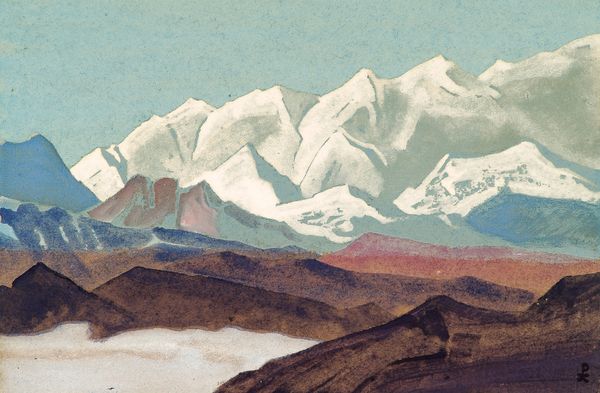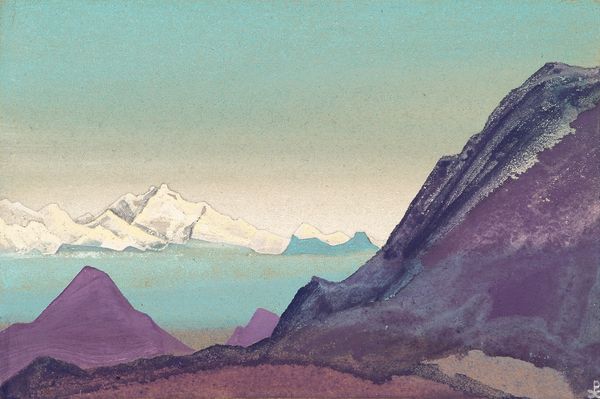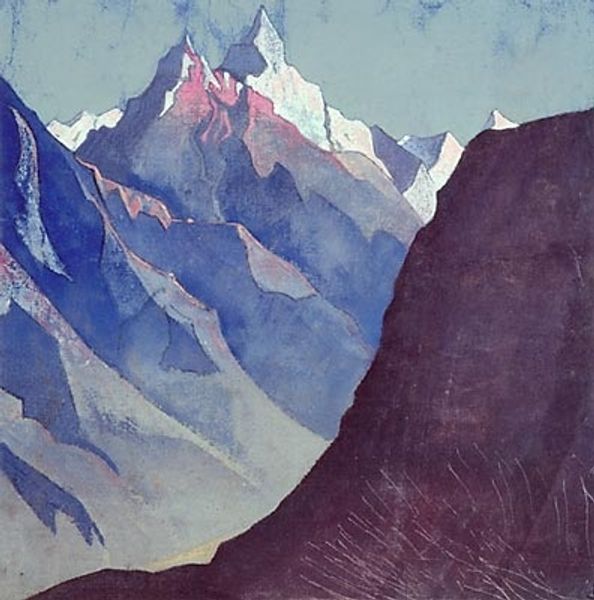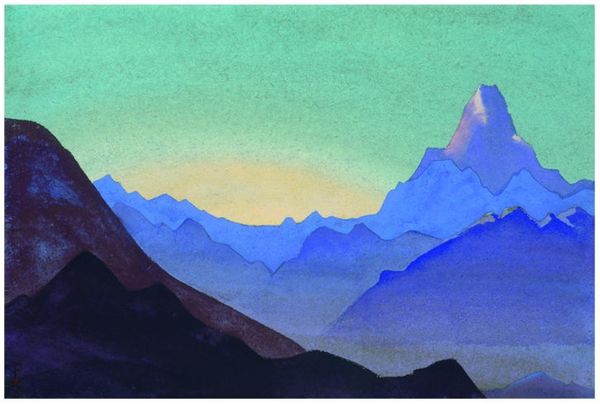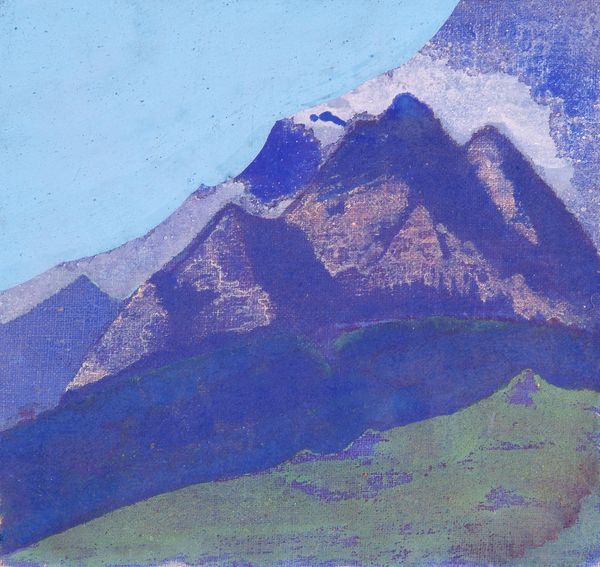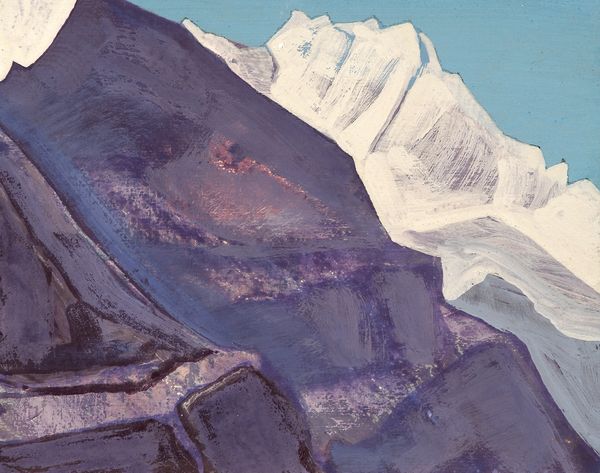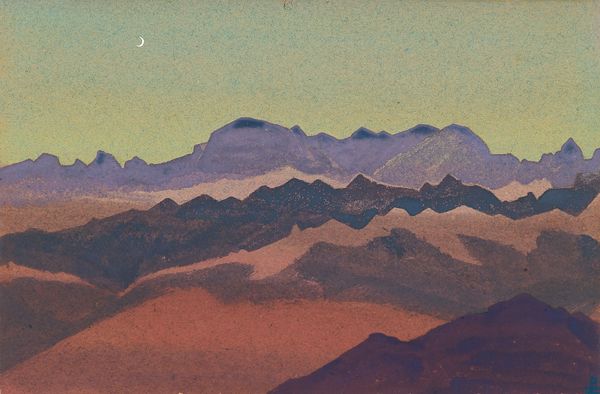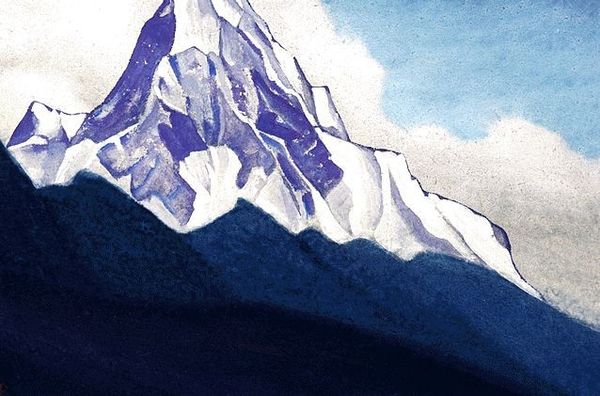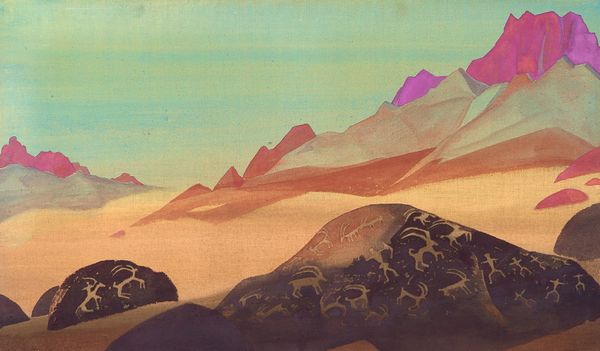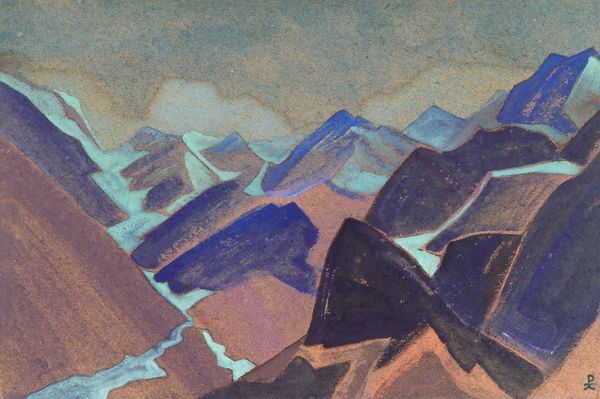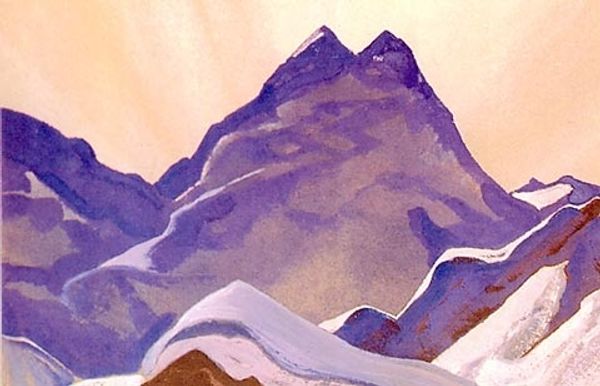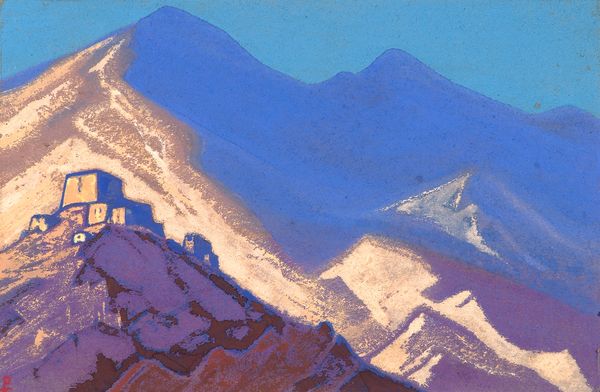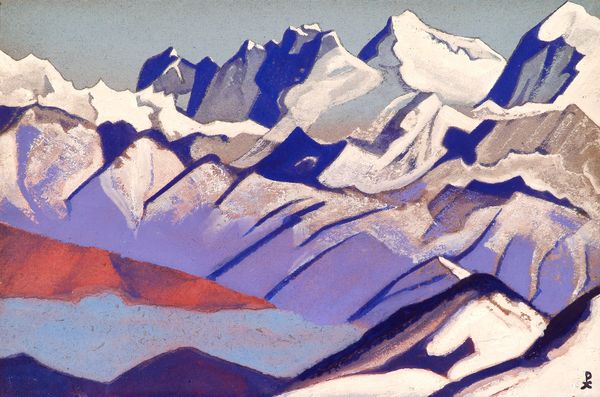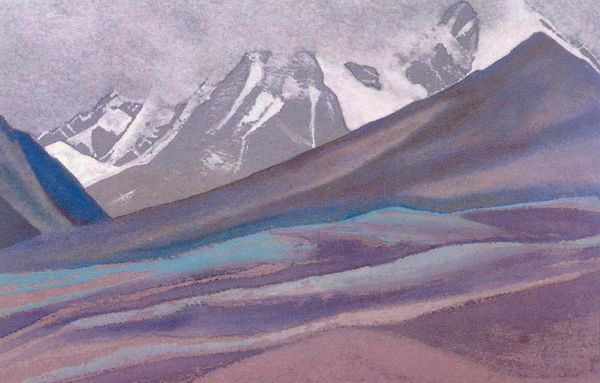
painting, acrylic-paint
#
sky
#
acrylic
#
painting
#
landscape
#
acrylic-paint
#
oil painting
#
rock
#
mountain
#
geometric-abstraction
#
cityscape
Copyright: Public domain
Editor: So, here we have Nicholas Roerich’s painting, “Study of Mountains,” painted with acrylic. The colours are incredibly striking – these cool blues juxtaposed with warm oranges and purples. What strikes me most is its tranquil feel, even though mountains are these massive, powerful forms. How do you interpret this work? Curator: It’s a powerful painting, especially when we consider Roerich’s deep engagement with the spiritual and political potential of landscape. Think about the Theosophical Society’s influence, and the rise of orientalism that perceived wisdom in the East, or movements of decolonisation taking place. Does the geometric abstraction of the forms remind you of other political works that create the space for liberation and transformation? Editor: I see what you mean – it almost feels like the mountains are simplified into essential forms, beyond just representing a physical place. They seem like symbols. Is that tied to Theosophical Society in some way? Curator: Exactly. Theosophy heavily influenced artists like Roerich, who saw art as a way to access deeper spiritual truths, even usher in an era of peace. The deliberate flattening, the simplification of these forms... how does it affect the accessibility of this landscape to the viewer? Does it promote the experience for someone familiar or unfamiliar with mountainous environments? Editor: It makes it feel more universal, maybe? Less about a specific place and more about a feeling, a connection to something larger than oneself. It’s interesting to consider that alongside ideas of social and political change. I never thought about landscapes being tied to these issues. Curator: Landscape painting wasn’t just pretty scenery. It became a ground where ideas about national identity, cultural appropriation, and spiritual quests intersected. Considering the work this way encourages us to question whose stories are privileged. Editor: That is an excellent point. Thinking about landscapes and who has access to these images is more political than I first considered. Thanks so much for broadening my perspective.
Comments
No comments
Be the first to comment and join the conversation on the ultimate creative platform.
